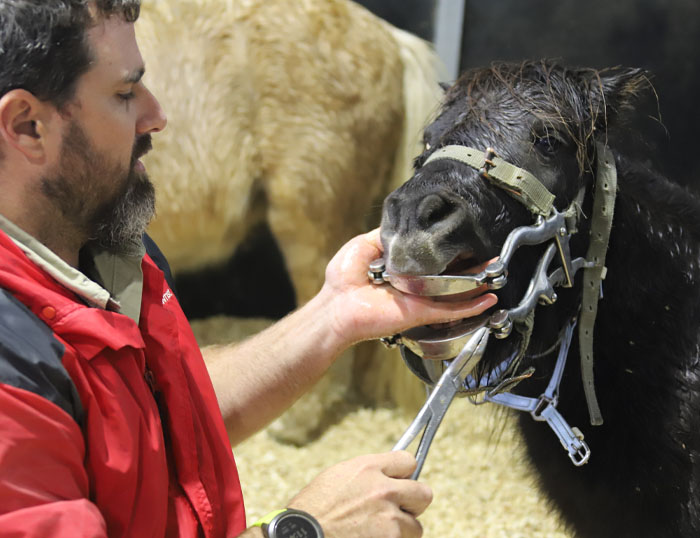The health of a horses mouth is crucial to its overall well-being. Equine oral lesions can significantly impact a horses ability to eat, perform, and enjoy life. Understanding these lesions and how to manage them is essential for horse owners and caretakers.

What Are Equine Oral Lesions?
Equine oral lesions refer to any abnormal tissue found within a horse’s mouth. These can range from minor irritations to significant ulcers or growths. Identifying these lesions early can prevent more serious health issues.
Causes of Equine Oral Lesions
There are several causes of oral lesions in horses, including dental abnormalities, trauma, infections, and systemic diseases. Regular dental exams can help identify potential problems before they become severe. For guidance on what to look for, check out this mouth exam checklist.
Symptoms to Watch For
Recognizing the symptoms of equine oral lesions is vital. Common signs include difficulty eating, drooling, bad breath, and visible sores or swelling in the mouth. If you notice these symptoms, it’s crucial to consult a veterinarian.
Diagnosing Equine Oral Lesions
A thorough dental examination is necessary to diagnose equine oral lesions. A veterinarian will inspect the horse’s mouth for abnormalities and may recommend further tests, such as biopsies or imaging, to determine the cause of the lesions.
The Importance of Regular Dental Exams
Regular dental care is essential for preventing equine oral lesions. Routine check-ups can identify issues early, reducing the risk of complications. Discover more about the importance of dental exams before purchasing a horse.
Treatment Options for Equine Oral Lesions
Treatment depends on the cause and severity of the lesions. Options may include medication, dietary changes, or surgical intervention. Post-treatment care is crucial for recovery. Learn more about dental care post-surgery.
Medications for Oral Lesions
Veterinarians may prescribe medications to reduce inflammation or treat infections. These can range from topical treatments to systemic therapies, depending on the lesion’s nature.
Surgical Interventions
In severe cases, surgery may be necessary to remove growths or repair damaged tissue. After surgery, proper care and monitoring are essential to ensure healing and prevent recurrence.
Preventing Equine Oral Lesions
Prevention is always better than cure. Regular dental check-ups, a balanced diet, and appropriate management practices can help prevent equine oral lesions. Explore natural dental care options for your horse.
Dietary Considerations
A balanced diet that supports oral health can prevent lesions. Foods that are too coarse or contain irritants should be avoided. Consult with a veterinarian to determine the best diet for your horse.
Management Practices
Proper management practices, such as ensuring a clean living environment and regular veterinary care, are essential in preventing oral health issues. Consistent monitoring allows for early detection and management of potential problems.
Long-term Implications of Equine Oral Lesions
Untreated equine oral lesions can lead to severe health issues, including weight loss and systemic infections. Long-term management and regular veterinary care can improve a horse’s quality of life and longevity.
Impact on Horse Performance
Oral lesions can affect a horse’s ability to perform. Pain and discomfort can lead to decreased appetite and performance issues. Addressing these problems promptly can restore a horse’s performance levels.
Overall Health Impact
The mouth is a critical component of a horse’s digestive and respiratory systems. Issues in the mouth can lead to broader health problems, emphasizing the importance of addressing equine oral lesions quickly and effectively.

FAQs About Equine Oral Lesions
What are the common signs of oral lesions in horses?
Common signs include difficulty eating, drooling, bad breath, and visible sores or swelling in the mouth.
How are equine oral lesions diagnosed?
Diagnosis involves a thorough dental exam by a veterinarian, who may recommend additional tests such as biopsies or imaging.
Can equine oral lesions be prevented?
Yes, regular dental check-ups, a balanced diet, and proper management practices can help prevent oral lesions in horses.
For more detailed information on regular dental care, explore the importance of regular equine dental care. Proper care and attention can significantly enhance your horse’s quality of life.
This article contains affiliate links. We may earn a commission at no extra cost to you.
